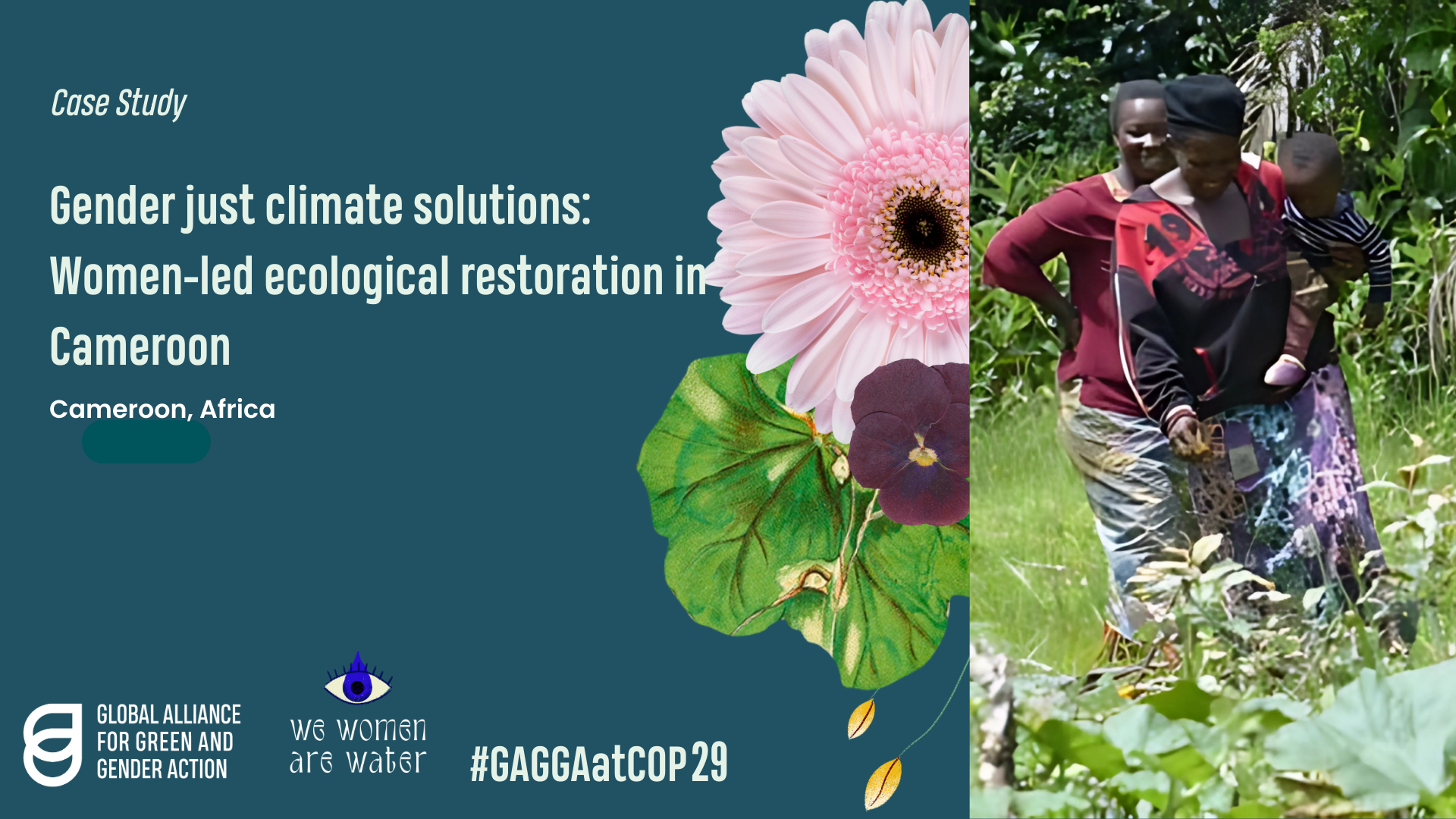)
Gender just climate solution: Women-led ecological restoration in Cameroon
In the montane grassland of Mbiame Village, in northwest Cameroon, women are using the gender just climate solution of Analog Forestry to restore degraded ecosystems, while strengthening their health and livelihoods through sustainable food production. Analog Forestry is an approach to ecological restoration that focuses on increasing biodiversity by imitating natural forest systems in order to create economically productive and environmentally mature forests. The approach values ecological sustainability while recognising local rural communities’ social and economic needs, which can be met through the production of a diversity of useful and marketable goods and services, such as food, natural medicines, fuel and fodder. Analog Forestry helps to restore degraded soils, which is essential for creating healthy and resilient ecosystems that have a natural resistance to plagues, droughts, floods and other threats. Moreover, diversification of crops decreases farmers’ risks and reduces dependence on external inputs.
Through the gender just climate solution of Analog Forestry, women in Mbiame Village are working to restore the area’s ecosystems and recreate the carbon sinks that are vital to mitigating climate change. Some 600 women are implementing Analog Forestry technology on both personal and community land. They have established household-level tree nurseries, producing seedlings for their own use and occasionally selling surplus seedlings to supply the community forest. Representatives of the village groups meet every quarter with staff of the Centre for Nursery Development and Eru Propagation (CENDEP). CENDEP supports the women with training and agricultural inputs, including seeds and tools.
To learn more, download the complete case study!





